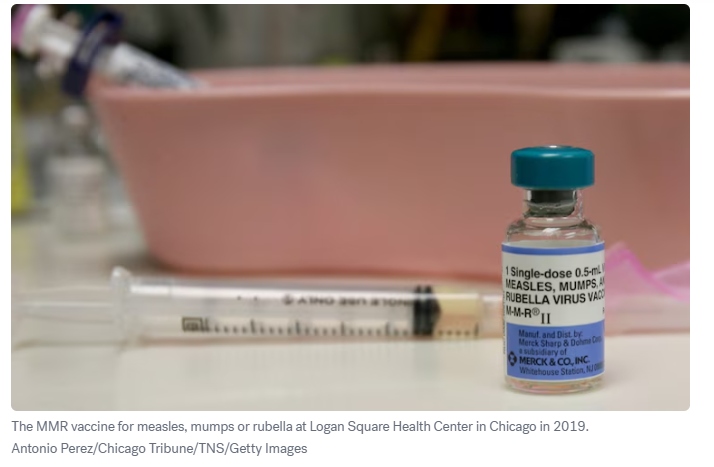Cases have been reported in Alaska, Georgia, New York, Rhode Island and Texas.
Measles cases are increasing across the U.S., with confirmed infections reported in at least five states this year.
According to the Centers for Disease Control and Prevention (CDC), cases have been identified in Alaska, Georgia, New York City, Rhode Island, and Texas, primarily among unvaccinated individuals.
In western Texas, an outbreak has expanded to at least 24 cases, as reported Tuesday by the Texas Department of State Health Services (DSHS).
All affected individuals are unvaccinated residents of Gaines County, which borders New Mexico. At least nine patients have been hospitalized, including two adults aged 18 and older, while the remaining cases involve children and adolescents.
“Given the highly contagious nature of measles, additional cases are likely to emerge in Gaines County and nearby communities,” the Texas Department of State Health Services (DSHS) stated on its website.

Vaccine exemptions among children in Gaines County—the epicenter of the outbreak—have risen sharply in recent years. In 2013, approximately 7.5% of kindergarteners had parents or guardians who filed for an exemption from at least one vaccine. By 2023, that figure had increased to over 17.5%, making it one of the highest exemption rates in Texas, according to state health data.
Individual schools have seen similar trends. At Loop ISD, located in Gaines County, 13.08% of students from kindergarten through 12th grade had a conscientious exemption for at least one vaccine during the 2018-19 school year. By the 2023-24 school year, that number had surged to over 47.95%, according to the Texas Department of State Health Services (DSHS).
Meanwhile, the Georgia Department of Public Health recently confirmed two additional measles cases in metro Atlanta. Both involved unvaccinated family members of a previously confirmed case from January.
Health officials continue to urge parents to vaccinate children who have not yet received the measles, mumps, and rubella (MMR) shot. The Centers for Disease Control and Prevention (CDC) recommends two doses: the first at 12 to 15 months old and the second between ages 4 and 6. One dose is 93% effective at preventing measles, while two doses increase effectiveness to 97%.
Zach Holbrooks, executive director of the South Plains Public Health District, told ABC News on Tuesday that the district’s clinic in Seminole will be offering MMR vaccines through Thursday.
The rise in cases reflects a broader trend across the country. According to the CDC, 14 measles cases have been confirmed nationwide so far this year, though this figure does not yet include the newly reported cases in Texas or Georgia. Every confirmed case has involved an unvaccinated individual or someone whose vaccination status is unknown.
Vaccination rates in the U.S. have been declining in recent years. According to a November 2023 CDC report, about 93% of kindergarteners received select routine childhood vaccines, including the MMR vaccine, during the 2022-23 school year.
While this rate remains steady compared to the previous school year, it has dropped from 94% in 2020-21 and 95% in 2019-20, prior to the COVID-19 pandemic. The 95% threshold had been the standard for about a decade.
Measles is one of the most contagious diseases known to humans. According to the CDC, a single infected person can transmit the virus to up to 90% of unvaccinated close contacts, particularly if they are not masked.
Complications from measles vary in severity. While some cases result in mild symptoms like rashes, others can lead to serious conditions such as viral sepsis, pneumonia, or encephalitis (brain swelling).
The increase in cases coincides with Robert F. Kennedy Jr.’s apparent path to becoming the next head of the U.S. Department of Health & Human Services. Kennedy has previously promoted the false claim that the MMR vaccine causes autism, despite extensive scientific research debunking any such link.
During his confirmation hearings in late January, Kennedy stated that he is not “anti-vaccine” but “pro-safety,” yet he declined to affirm that vaccines do not cause autism.


